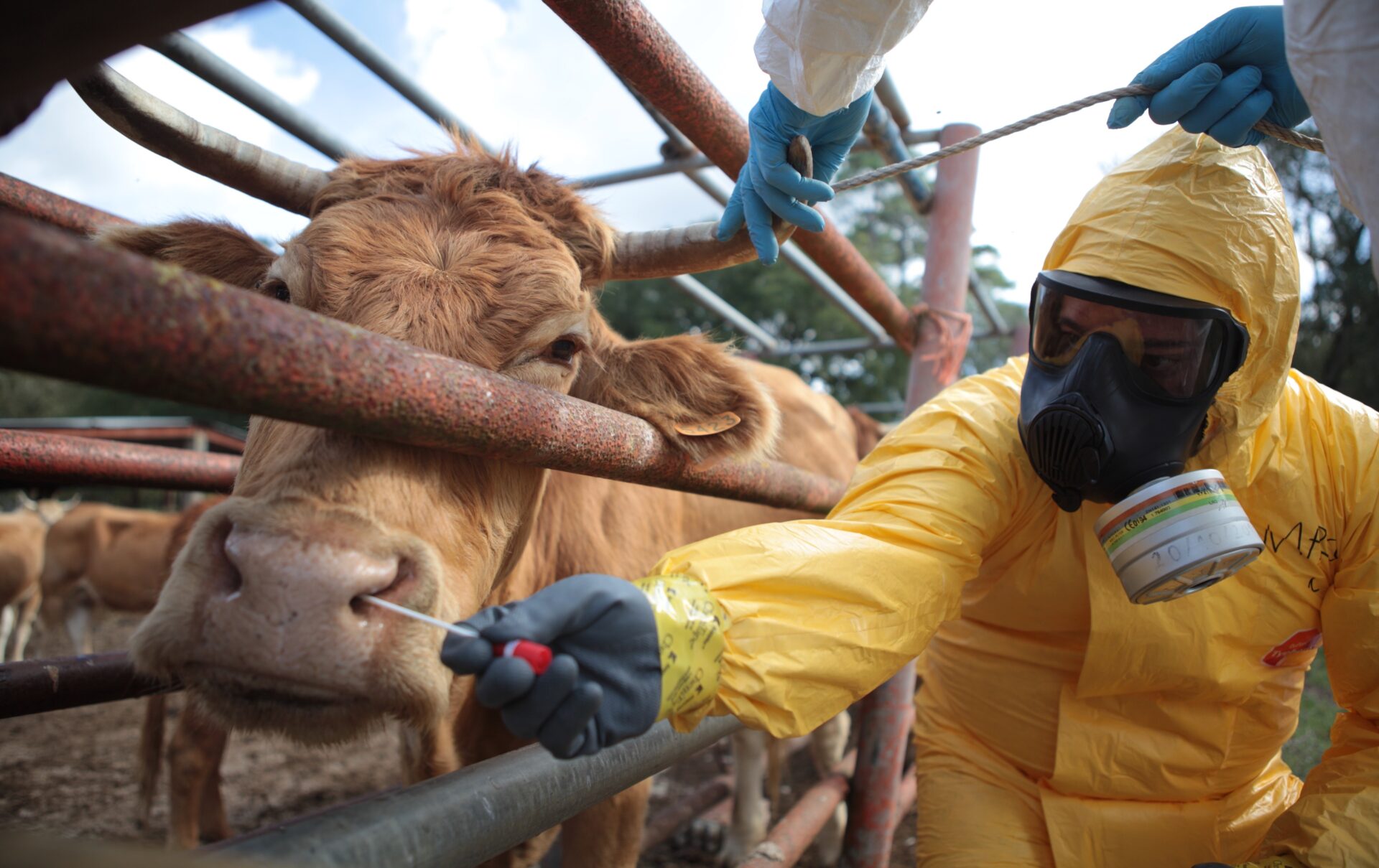A century of improving animal health and welfare
Ever since humans inhabited the earth, animals have been an integral part of our lives and sustainability.
One hundred years ago, 28 founding nations came together to address a shared purpose – the health and well-being of animals. From setting standards to amplifying the voice of the veterinary workforce in the global health agenda, we reflect on our journey: a century of improving animal health and welfare.
-
Published on 01/08/2024
-
Published on 06/12/2024
-
Published on 21/11/2024
-
Published on 20/11/2024
-
-
-
-
-
-
Article, 100th Anniversary
Placing aquatic animal health in the global agenda
-
-
Article, 100th Anniversary
Preserving animal, human and environment health as one
-
Article, 100th Anniversary
WOAH Standards: building a global governance of animal health
-
Article, General Session
WOAH Members adopt a revised standard on animal welfare during slaughter
-
Article, General Session
Vector-borne diseases surveillance: a global health imperative
-
Article, 100th Anniversary, Op-ed
100 years of championing animal health and welfare
-
Article, 100th Anniversary
17 years strengthening the performance of Veterinary Services
-
Article, 100th Anniversary
The futures of animal health and welfare: leveraging foresight for strategic thinking
-
Article, 100th Anniversary
Fostering a “shared understanding of animal welfare”
-
Article, 100th Anniversary
WOAH takes a leadership role in tackling antimicrobial resistance
-
Article, 100th Anniversary
From telegrams to data visualisation: a century of animal health information
-
-
-
-
-
-
-
-
-
-
-
Article, General Session
WOAH Members adopt a revised standard on BSE
-
Article, General Session
WOAH updates equine standards to reduce obstacles to the movement of competition horses
-
Article, General Session
Trends in the use of veterinary vaccines: the case of rabies and PPR
-
Article, General Session
Sharing expertise to rethink avian influenza prevention and control efforts
-
Success Story
The PVS Pathway reports: tools for advocacy
-
Annual Report, 2022
“The veterinary workforce plays a key role in the global One Health agenda”
-
Annual Report, 2022
Animal transport: implementing welfare regulations in the field
-
Annual Report, 2022
Empowering veterinary paraprofessionals through education
-
-
Annual Report, 2022
Early-warning systems: modeling the spread of vector-borne diseases
-
Annual Report, 2022
Field simulation trainings to support emergency preparedness
-
Annual Report, 2022
Expertise network: “We are the eyes and ears on animal influenza”
-
Annual Report, 2022
Protecting wildlife health by enhancing surveillance systems
-
-
Annual Report, 2022
ANIMUSE: monitoring antimicrobial use in animals
-
-
-
-
-
-
-
-
-
-

Preparing against biothreats
With the world becoming increasingly complex and interconnected, the time has come to prepare for an uncertain future through better and stronger emergency management. WOAH advocates taking biothreats in animals seriously and urges stakeholders to enhance efforts against all the threats facing today’s world.
-
Type of animals Terrestrials, Avian
-
Type of animals Terrestrials, SwineUseful links
-
Type of animals Terrestrials, Multiple species
-
Type of animals Terrestrials, Other animals
-
Type of animals Terrestrials, Sheep and goats
-
Type of animals Terrestrials, Multiple species
-
Type of animals Terrestrials, Swine
Working across borders to foster a One Health approach to global health. The health of animals and the environment strongly depend on human activities.
-
One Health
The “One Health” approach summarises a concept that has been known for more than a century; that human, animal and plant health are interdependent and bound to the health of the ecosystems in which they exist. We envisage and implement it as a collaborative, whole of society, whole of government approach to understanding, anticipating and addressing risks to global health.Discover
-
Antimicrobial resistance
Imagine a world where infections and diseases in humans, animals and plants are impossible to treat. This worst-case scenario could become a reality as bacteria, viruses and parasites develop resistance to the drugs we use to fight them. Antimicrobial resistance, or AMR, has become one of the most pressing health issues of our time. Solutions exist and everyone has a role to play in the fight against this global threat.Discover -
Disease Data Collection
The World Animal Health Information System (WAHIS) is the global reference platform for the publication of official data on epidemiologically important diseases in domestic and wild animals. The data tracks the evolution of diseases, assists in trade and policy decisions, and informs research.Discover -
Animal Welfare
Animal welfare is a complex and multi-faceted subject with scientific, ethical, economic, cultural, social, religious and political dimensions. It is attracting growing interest from civil society and is one of the priorities of the World Organisation for Animal Health (WOAH).Discover -
Aquatic animals
Aquatic animals play a key role in achieving a more prosperous and secure world, contributing to Sustainable Development Goals (SDGs).Discover
-
Publication, Report
Key Certainties and Uncertainties in Animal Health and Welfare
.pdf – 3 MB See the document -
Guidelines, Publication
Guidelines for the control of Mycobacterium tuberculosis complex in livestock
.pdf – 1 MB See the document -
Publication, Report
Forecasting the Fallout from AMR: Economic Impacts of Antimicrobial Resistance in Humans
.pdf – 4 MB See the document -
Publication, Report
Forecasting the Fallout from AMR: Economic Impacts of Antimicrobial Resistance in Food-Producing Animals
.pdf – 4 MB See the document -
Publication, Policy brief
Forecasting the Fallout from AMR: Averting the Health and Economic Impacts through One Health Policy and Investment
.pdf – 284 KB See the document -
Publication, Report
Forecasting the Fallout from AMR: Human Health Impacts of Antimicrobial Resistance
.pdf – 5 MB See the document -
Guidelines, Publication
Countering disinformation and misinformation in animal health emergencies
.pdf – 1,003 KB See the document -
Guidelines, Publication
Competency and Curriculum Guidelines for Community Animal Health Workers
.pdf – 7 MB See the document -
Co-Publication
Updated joint FAO/WHO/WOAH assessment of recent influenza A(H5N1) virus events in animals and people
.pdf – 459 KB See the document -
.pdf – 771 KB See the document
